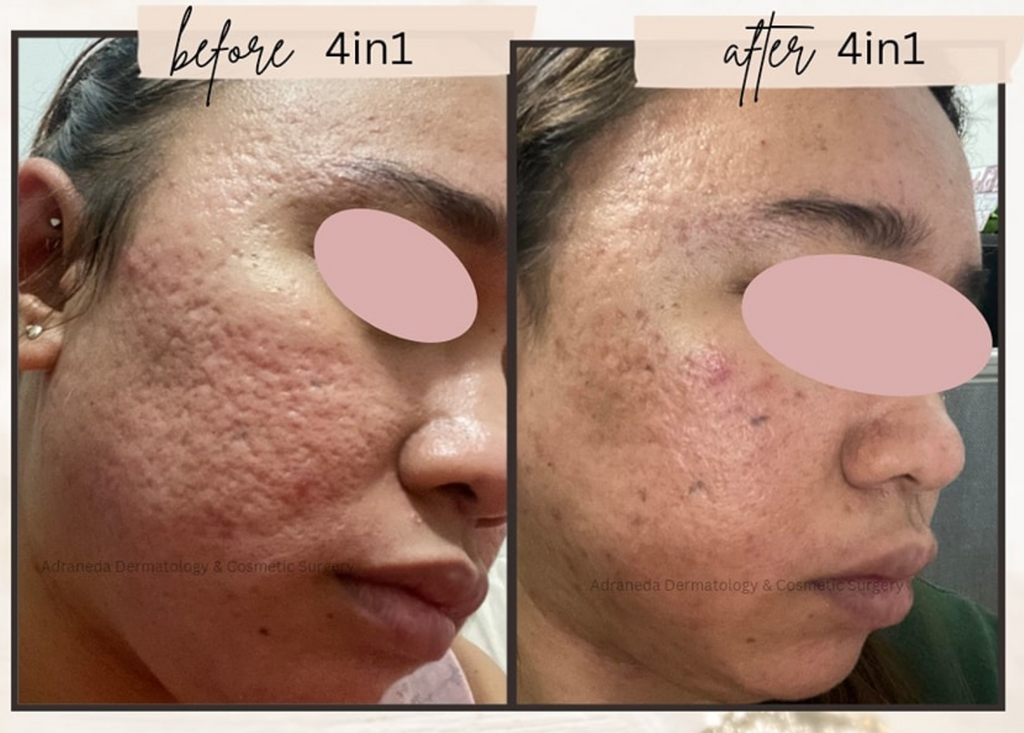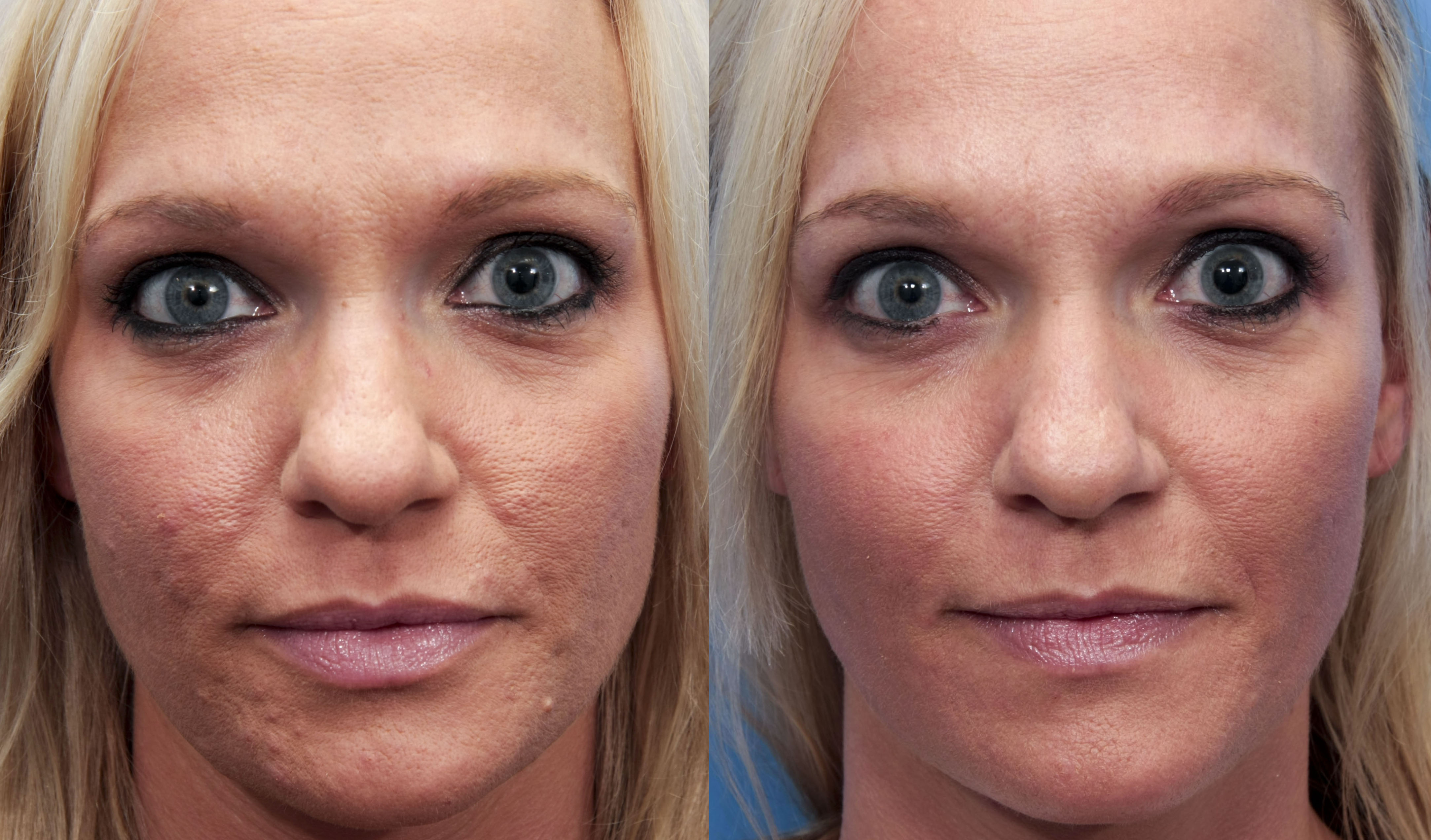Effective Acne and Acne Scars Treatment: Clear Your Skin with Self-confidence
Effective Acne and Acne Scars Treatment: Clear Your Skin with Self-confidence
Blog Article
Understanding the Various Skin Conditions and Effective Treatment Options for Acne Scars
Acne marks represent an intricate interaction of skin conditions that considerably influence individuals' self-esteem and total skin wellness. As we discover the landscape of acne scar monitoring, it ends up being evident that the journey towards clearer skin might include more than just topical options.
Types of Acne Marks
Acne scars can materialize in various types, each requiring certain therapy strategies. The 2 key classifications of acne marks are atrophic and hypertrophic marks. Atrophic scars are defined by a loss of cells, leading to clinically depressed areas on the skin. These scars are additional categorized right into 3 subtypes: ice choice scars, which are narrow and deep; boxcar marks, which are broader and have well-defined edges; and rolling marks, which create a wave-like appearance as a result of uneven skin structure.
In comparison, hypertrophic marks arise from an overproduction of collagen during the healing procedure, leading to raised areas on the skin. These scars are usually firm and can vary in color, in some cases showing up red or darker than the surrounding skin.

Reasons of Acne Scarring
Scarring occurs as an outcome of the body's all-natural healing response to swelling and injury triggered by acne lesions. When acne kinds, it activates an inflammatory reaction, leading to the release of different cytokines and development factors that advertise healing. This process can occasionally lead to too much cells development or insufficient fixing, resulting in marks.
The primary reasons of acne scarring include the intensity of the acne itself, duration of the sores, and individual skin types. Extreme inflammatory acne, such as cysts and nodules, is a lot more likely to lead to scarring as a result of deeper cells damage. Furthermore, improper handling of acne lesions, such as squeezing or choosing, can worsen tissue injury and swelling, raising the possibility of scarring.
Hereditary predisposition likewise plays a significant role; people with a family background of scarring go to a higher danger. In addition, skin type and color can affect scar formation, as darker complexion might experience post-inflammatory hyperpigmentation, while lighter skin might develop atrophic scars.

Treatment Options for Scarring
Effective treatment options for acne scarring vary depending upon the kind and intensity of the marks. Normally categorized into atrophic, hypertrophic, and keloid scars, these conditions need tailored approaches for optimal outcomes.
For atrophic scars, which are defined by a loss of cells, treatments such as chemical peels, microdermabrasion, and laser therapy are typically employed. These approaches advertise skin revival and promote collagen production, thereby boosting skin texture. Subcision, a minimally invasive treatment, can likewise be efficient by damaging up coarse bands underneath the skin.
Hypertrophic and keloid scars can be more challenging to treat. Options include corticosteroid injections to decrease inflammation and squash the scars. acne treatment for sensitive skin. In some instances, cryotherapy or laser treatment may be recommended to reduce their appearance
Surgical alternatives are offered for serious scarring, where excision or skin grafting might be needed. It's vital for individuals to speak with a skin specialist to evaluate their particular mark type and review the most ideal treatment strategy. Integrating multiple treatments often generates the most effective outcomes, making certain that each client's one-of-a-kind skin disease is addressed successfully.
Home Remedies and Natural Solutions
All-natural options and home solutions can offer an available method for people seeking to boost the appearance of acne scars. Different ingredients discovered in the home cooking area have demonstrated possible benefits in boosting skin structure and promoting recovery.
Applying fresh aloe vera gel directly onto the scars can aid improve skin hydration and reduce redness. Honey possesses all-natural anti-bacterial and moisturizing qualities that can assist in mark recovery.
Another efficient choice is lemon juice, which works as an all-natural exfoliant and can lighten hyperpigmentation. Nonetheless, it should be utilized carefully, as it might create photosensitivity. Oatmeal masks are additionally valuable; their gentle exfoliation can assist eliminate dead skin cells while relaxing irritation.
Crucial oils, such as tea tree oil and lavender oil, can further sustain mark healing because of their antimicrobial buildings. It is essential to perform click reference a spot examination before applying any kind of treatment to make certain there are no damaging responses. These natural services can be a complementary method in the trip to reduce acne scars.
Stopping Future Scarring
Adopting a proactive approach to skin care can significantly minimize the risk of creating future acne marks. Among the vital approaches is to manage acne properly as it occurs (skin rejuvenation treatments). This entails utilizing non-comedogenic skincare products and medications suggested by dermatologists that target acne without irritating the skin. Normal cleaning, peeling, and hydration can assist preserve skin wellness and prevent clogged up pores.
Additionally, staying clear of the temptation to select or squeeze acne lesions is vital, as this can result in inflammation and subsequent scarring. Instead, people ought to concentrate on applying topical treatments that promote healing and lower swelling. Components such as salicylic acid, benzoyl peroxide, and retinoids are known for their efficacy in handling acne and minimizing scars.

Finally, keeping a healthy diet abundant in anti-oxidants and remaining moisturized assistances skin regrowth. By executing these safety nets, individuals can substantially reduce their danger of future scarring and promote total skin wellness.
Conclusion
Finally, a thorough understanding of acne scars, encompassing both hypertrophic and atrophic kinds, is crucial for effective treatment techniques. Customized interventions, including expert therapies and natural remedy, can considerably enhance skin look and appearance. Safety nets likewise play a critical duty in minimizing future scarring. Assessment with a skin doctor continues to be necessary to develop customized methods that consider individual skin kinds and scar seriousness, inevitably enhancing the efficacy of mark monitoring methods.
Acne marks represent a complicated interaction of skin conditions that dramatically effect individuals' self-confidence and overall skin health. The two key categories of acne scars are atrophic and hypertrophic marks. These marks are more identified into three subtypes: ice choice scars, which are narrow and deep; boxcar scars, which are wider and have distinct sides; and rolling marks, which produce a wave-like appearance due to uneven skin structure.
A detailed appointment with his explanation a dermatologist can help establish the most proper treatment, taking right into account the individual's skin type, mark intensity, and total skin wellness.
Examination with a skin specialist continues to be crucial to design customized techniques that take into consideration specific skin types and mark seriousness, ultimately boosting the efficacy of mark management techniques.
Report this page